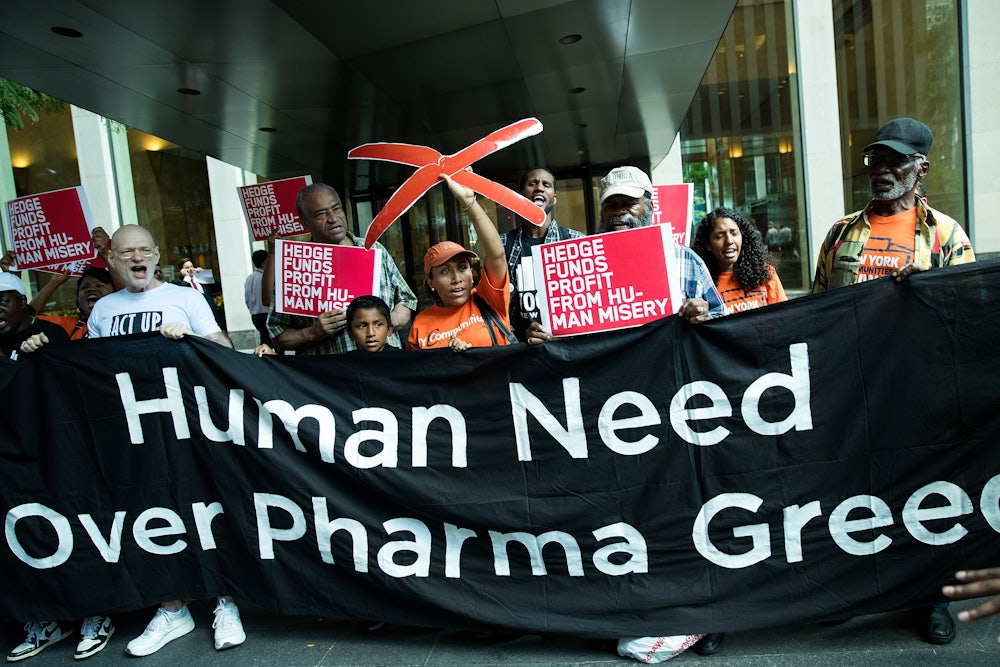Since flipping the House of Representatives in last year’s midterms, Democrats have been waiting to see real oversight return to the halls of Congress. That arrived on Tuesday, with the Committee on Oversight and Reform’s first hearing of 2019. But the subject at hand may have disappointed those who were hoping for a dramatic broadside against the Trump administration.
“Our first witness today is not President Trump’s personal lawyer Michael Cohen,” said chairman Elijah Cummings. “It’s not someone from the White House or even the Trump administration... The first witness is Antoinette Worsham.”
Worsham, a working mother from Cincinnati wearing a T-shirt reading “Patients Over Profits,” told the committee about her two daughters, both of whom were diagnosed with Type 1 diabetes. When the oldest, Antavia, turned 21, she was kicked off the Bureau for Children of Medical Handicaps, a state program that helped pay for her insulin. Unable to afford the medication, Antavia began to ration it. Eventually, she died. Worsham’s second child, Antanique, a freshman at the University of Toledo, fears the same fate.
“In two years my daughter will be 21,” Worsham told the committee, her voice cracking. “I am crying out and asking for you to review the pharmaceutical drug gouging and make healthcare affordable for all.”
Cummings has been working on the issue of high drug prices for a decade. Tuesday’s hearing was the first of what looks to be his signature investigation, an analogue to Henry Waxman’s investigation of the tobacco industry when he ran the Oversight Committee in the 1990s. It’s a reminder to Democrats of the importance of overseeing more than just the Trump administration—of the power of Congress not just to check the president, but make a difference in people’s lives.
Health care was the top issue in the midterm elections, making drug company price-gouging a natural subject of inquiry. Prescription drug prices are expected to go up to $610 billion by 2021, and for every price that gets cut, another 96 increase. The Center for Medicare and Medicaid Services projects prescription drug spending as a primary driver of overall health care inflation.
Innovation, in the form of new advances in medicine, is not the cause of this steady price rise. It mostly comes from existing medications. Insulin, for instance, is a 100-year-old drug that companies have “evergreened” through incremental changes to the makeup of the drug, which resets the 20-year patent clock. Insulin costs per patient doubled from 2012 to 2016, and at the beginning of the year, Sanofi and Novo Nordisk raised their insulin prices again.
Cummings’s Oversight Committee is taking on the industry in a systematic fashion. Two weeks ago, he sent letters to twelve major drug companies, asking for internal communications about price increases and preserving market share, as well as estimates of investment in research and development. Repeatedly in the hearing, Democrats made the point that pharmaceutical companies spend more on advertising than researching new drugs.
The hearing featured several researchers and experts on the drug supply chain, as well as Worsham. Future ones will undoubtedly include CEOs of the leading drug companies, contrasting the personal stories of dying patients with the cold financial calculus of Big Pharma executives. Maybe Cummings will end up with a picture as famous as the shot of the tobacco CEOs with their hands raised, testifying under oath that they had no idea their product was addictive.
There’s no shortage of legislative ideas to prevent skyrocketing prices. Prescription drugs are currently organized through patent monopolies that give 20 years’ exclusivity to treatments. Congressman Ro Khanna and Senator Bernie Sanders would break those monopoly contracts and license medications for generic competition if the prices exceeded an international benchmark. Senator Elizabeth Warren would create an Office of Drug Manufacturing to manufacture generic versions of excessively priced or inaccessible drugs. And that’s on top of more common proposals, like having Medicare directly negotiate with drug companies over prices or importing lower-price drugs from overseas.
Most consumers know that drug prices are high and getting higher. But a congressional investigation that yields real information from inside the executive suites of pharmaceutical companies can build momentum. It can spur legal action, as it did in the tobacco case. It can set a roadmap for legislation, like the series of reports from former Senator Carl Levin’s subcommittee on shady financial practices that informed what became the Dodd-Frank Act.
It can even lead to bipartisan support. At yesterday’s hearing, Mark Meadows, the head of the Freedom Caucus who is seen as a close confidant of Donald Trump, said that he was “conveying a message from the President… he is serious in working in a bipartisan way to lower the cost of prescription drugs.” Trump’s actions thus far on drug prices have been limited and fairly ineffective, but even he has proposed some solid ideas, like eliminating rebates that push up list prices and forcing certain drugs to conform prices to international benchmarks. Good oversight makes it impossible to ignore pressing problems and can cut through the partisan fog.
Congress has lost a lot of institutional memory over the years, and perhaps the greatest deficiency has been in the area of oversight. Congress’ role should not be limited to overseeing the executive branch, although that’s certainly important. Committees can use oversight as a kind of field study for the challenges facing Americans outside of Washington, to identify and inform priorities. And in doing so, Congress can get closer to the people by showing its interest in the people’s business. As Cummings raged at the end of the hearing, “The cost of doing nothing is never nothing. I am going to paint Ms. Worsham’s face in the DNA of every cell of my brain to try and make sure that her other daughter, who’s facing the same thing, does not die.”
